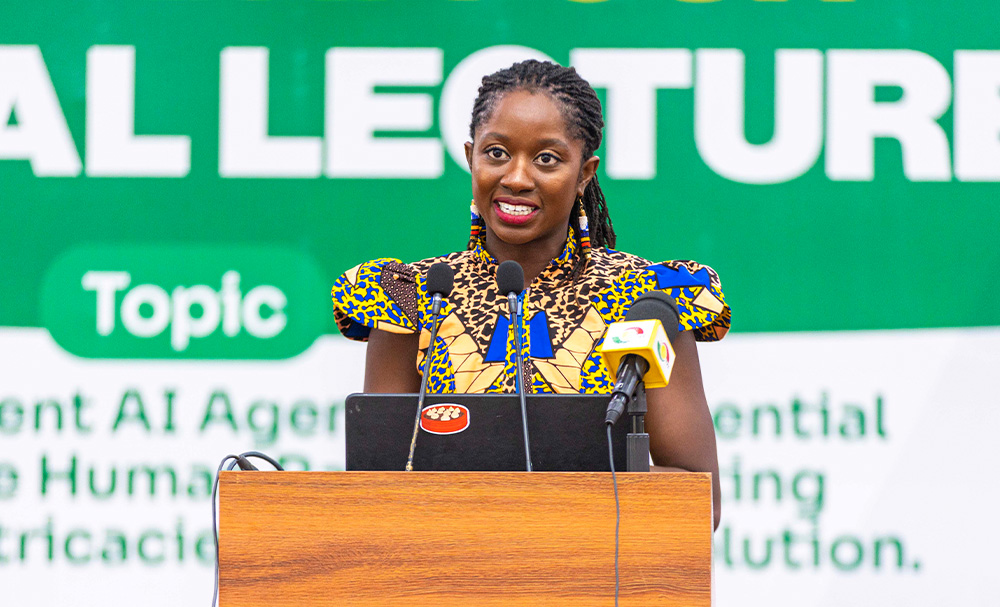Africa’s ability to build and safely deploy advanced artificial intelligence will be determined by access to locally representative training data and energy-reliable compute infrastructure, says U.S.-based Google Research scientist Dr. Mercy Nyamewaa Asiedu.
“There is a lot of promise here but there is also caution with the current AI models we have,” Asiedu said, marking one of the clearest warnings by a global AI researcher on African soil about the limits of non-local datasets.
Speaking at the 13th Edition of the RP Baffour Memorial Lecture Series themed “Super Intelligent AI Agents: An Existential Threat to the Human Race? Navigating Through the Intricacies of the AI Revolution,” she said current AI models are “mirrors” of their training data, inheriting both patterns and prejudices.
“So, these issues like bias and fairness; models perpetuate the data they are learned on. privacy, and security, and autonomy,” she said, citing real-world failures that have already shaped global AI policy.
Referencing facial recognition bias research by Ghanaian-American scientist Joy Buolamwini, she said AI vision models failed to detect Buolamwini because of her skin colour, adding: “And this had huge implications for facial recognition systems that might be used in crime detection or identification.”
She also flagged inequity in automated healthcare delivery: “There was also a bias algorithm that was used in the US to manage health populations, it was not sending black people in the us for care as compared to the whites due to a difference in cost.”
Her diagnosis of the solution was succinct: “To overcome this, one has to understand local contextual biases and fairness issues.”
Dr. Asiedu also raised the human and economic stakes of AI adoption, noting shifting global labour patterns.
“Even though there's an estimated 92 million jobs that will be displaced by 2027, they estimate about 170 million jobs will actually be created,” she said, arguing that automation will more often reshape jobs than erase them. “Most of the time, you see this evolving with the jobs and complimenting the jobs.”
She also issued a timely alarm on generative AI misinformation across Africa a concern accelerating ahead of the continent’s next election super-cycle.
“Misinformation and trust erosion is also a huge issue with these generative AI models,” she said, urging digital literacy in schools and universities. Warning students directly, she said: “If you see your friend's face on a naked body, don't immediately assume it's true.”
Dr. Asiedu extended the warning beyond campus harms to continental risks, including deepfakes, cyberbullying, identity fraud, fake pharmaceuticals and AI-assisted scams. She also spotlighted the environmental cost of scaling AI; a pressure points for developing economies.
AI requires “a lot of computation resources,” she said, which must be “powered” and “cooled,” using “a lot of electricity” and “a lot of water” for model operation and data-centre cooling.
Her prescription for AI sustainability was direct invest in “green infrastructure,” build “energy efficient models,” pursue “technical partnerships,” and “leverage AI for climate change.”
The R.P Baffour Memorial Lectures was instituted by the Council of the University in 1997 to honour its first Ghanaian Vice-Chancellor in recognition of his sound leadership and immense contribution to the physical development and growth of the University.
Story: Edith Asravor Photos: Isaac Kwaku Duah

















